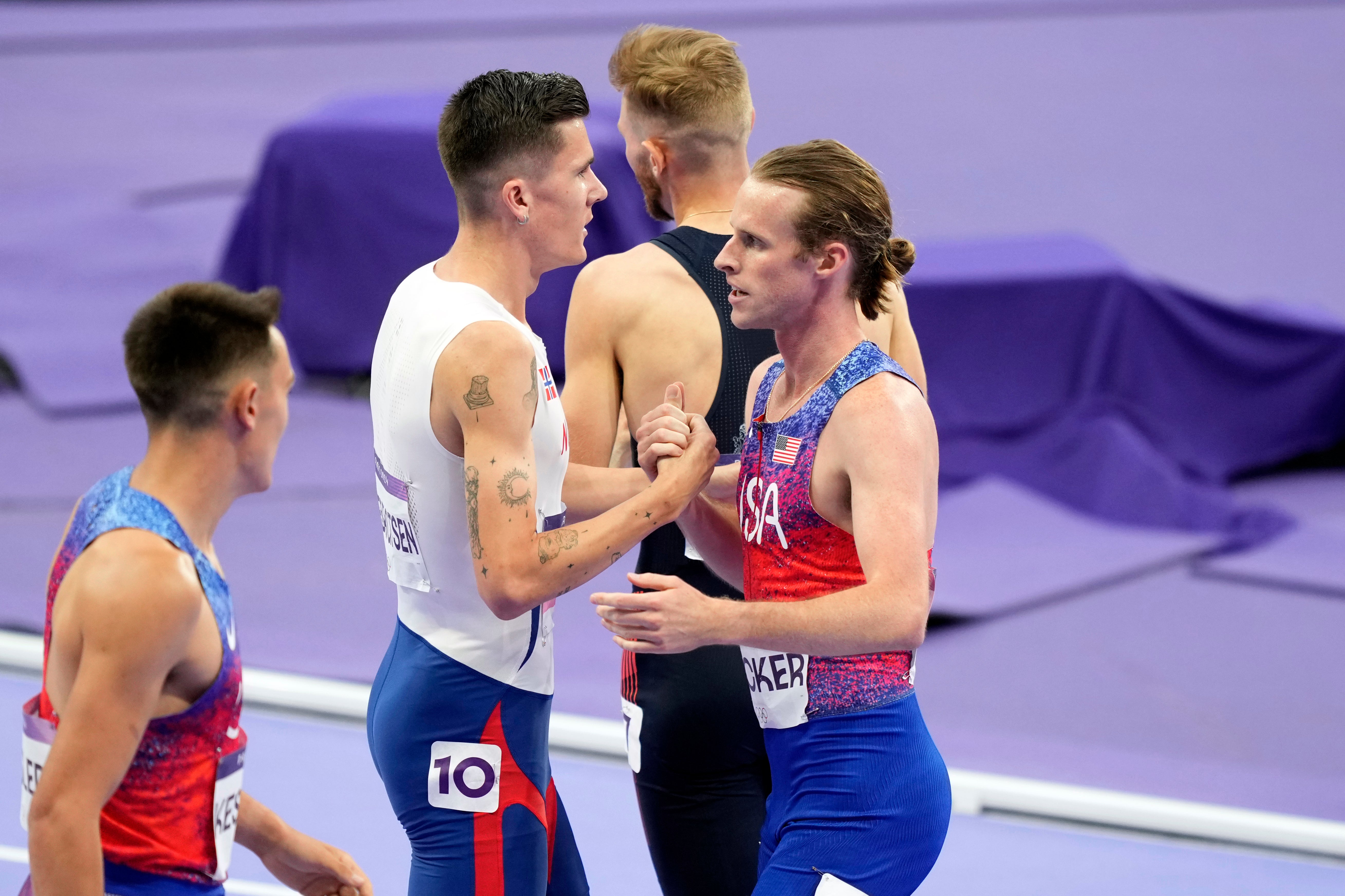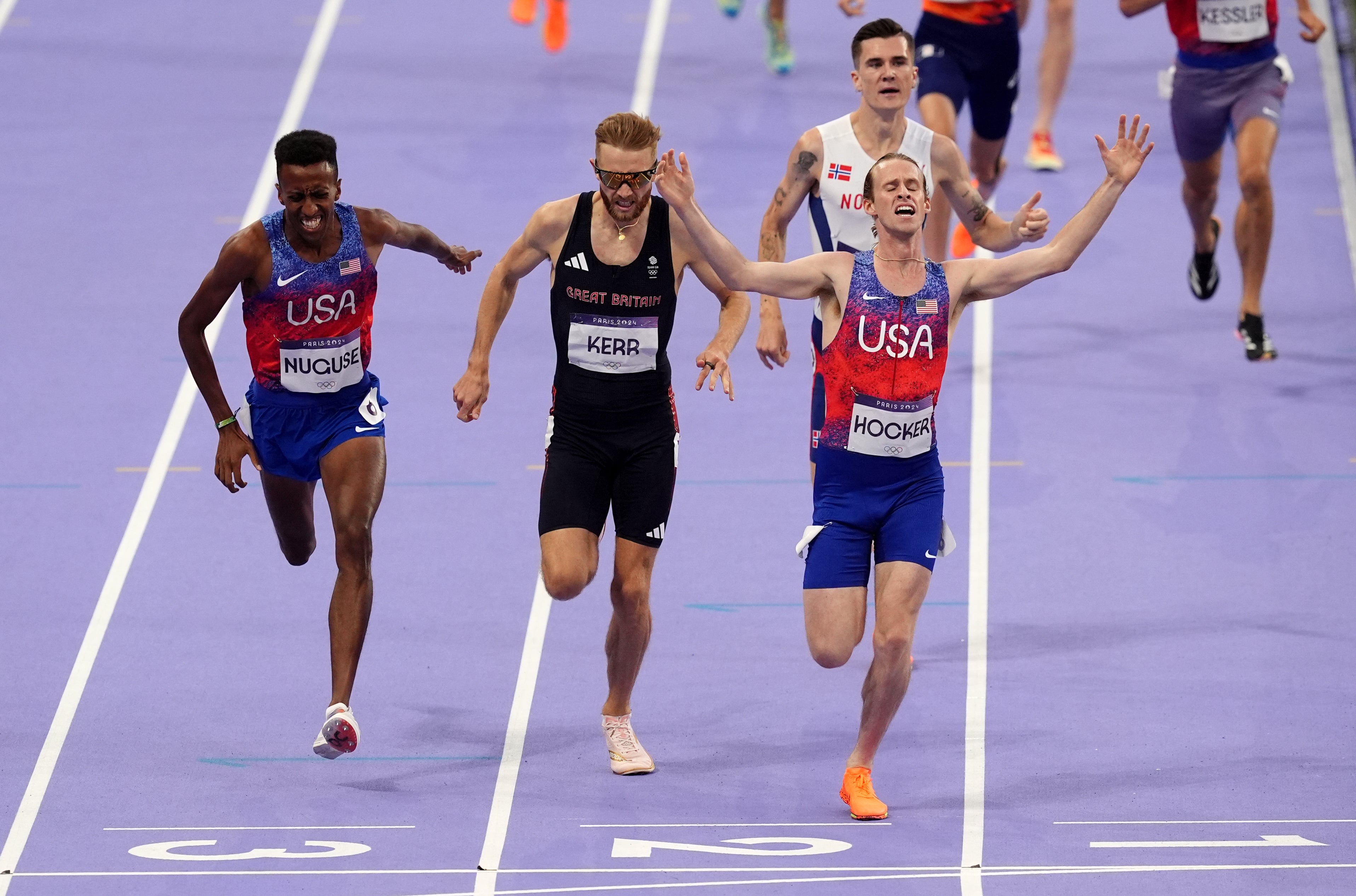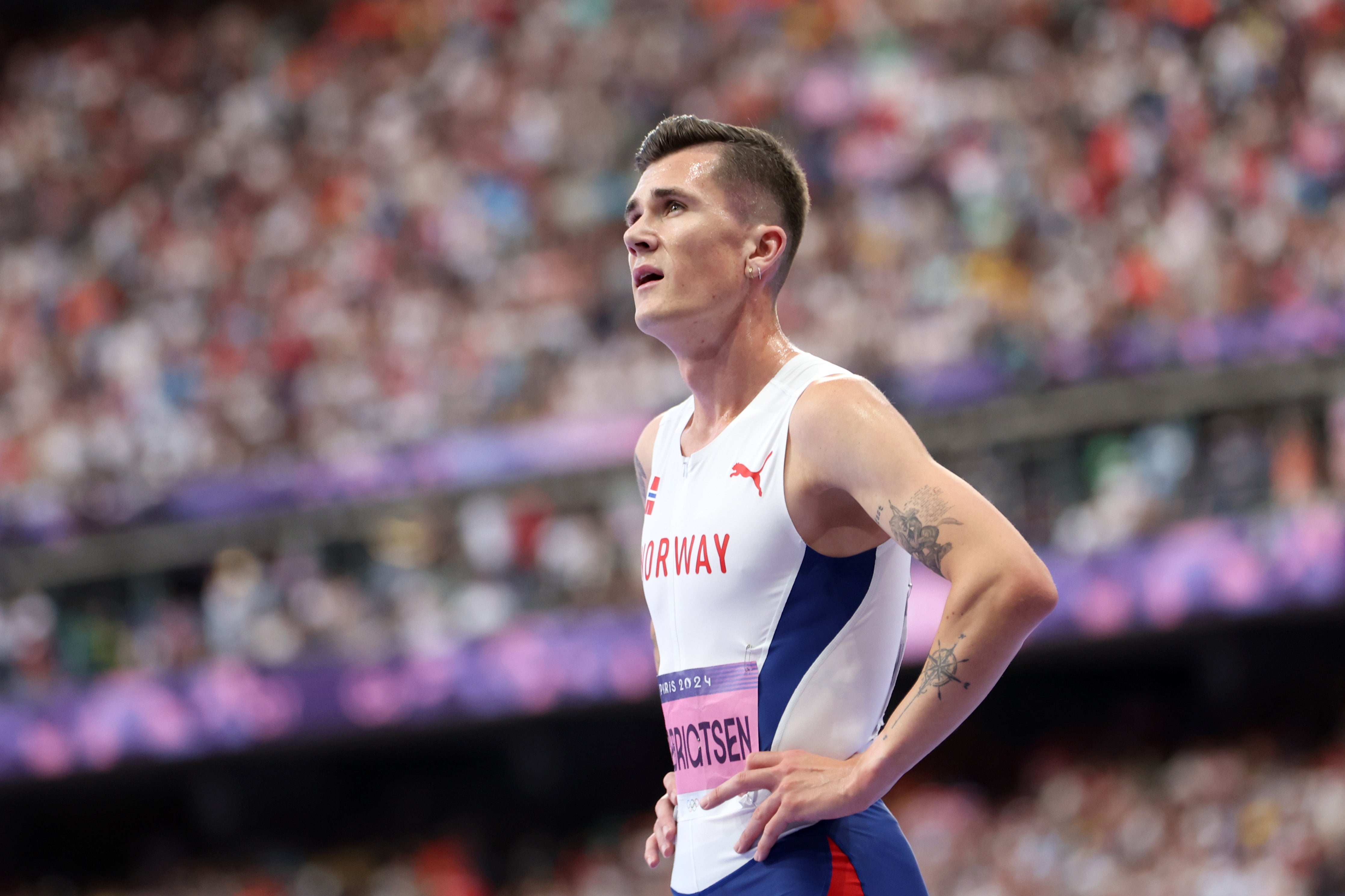This website uses cookies so that we can provide you with the best user experience possible. Cookie information is stored in your browser and performs functions such as recognising you when you return to our website and helping our team to understand which sections of the website you find most interesting and useful.
Support truly
independent journalism
Our mission is to deliver unbiased, fact-based reporting that holds power to account and exposes the truth.
Whether $5 or $50, every contribution counts.
Support us to deliver journalism without an agenda.

Louise Thomas
Editor
Jakob Ingebrigtsen passed the 400m mark, the Norwegian middle distance phenomenon checked the clock: 54.9 seconds. Uh oh, the defending champion was on pace for the world record, Hicham El Guerrouj’s 26-year mark and a journey into the unknown.
With no pacer or wave lights last night to serve as a rabbit, Ingebrigtsen had accepted a gruelling race from the gun, one which bitter rival Josh Kerr had promised would be “vicious”. It’s an Olympic 1500m final after all, a much purer form of racing, where plenty of emotional energy is burnt in an event decided by minute adjustments. Speed up, slow down, half a step inside, half a step outside. This event is a beautiful blend of physicality and tactics.
Kerr, the world champion and Ingebrigtsen’s bitter rival, would not go away, though, drafting in behind and conserving energy. But this was no time to panic. The race quickly arrived at 800m. One minute, 51.5 seconds. Oh, no. Still only 1.5 seconds off the world record. Ingebrigtsen knew this was a “dangerous” place to be. But it was too late.
He was there to be shot at and vulnerable after the two previous major championship finals. Despite going out at world record pace, Ingebrigtsen failed to build a gap to his rivals, as Kerr, Cole Hocker and others tucked in for the ride. Jake Wightman and Kerr revealed the blueprint in consecutive World Championships and now Ingebrigtsen was poised to make the same mistake for a third time.
“I opened with a 54-second lap. That wasn’t the plan at all,” Ingebrigtsen pointed out after being stunned by American Cole Hocker with a new Olympic record of 3mins 27.65secs. “It was at least two seconds too fast. I was thinking about slowing down, but the next lap was almost the same speed. I ruined it for myself by going way too hard.
“I felt really strong and I have had a good progression with races this year. I didn’t realise what pace it actually was. It was not the plan to open that hard. It was difficult to slow down though and kind of reduce my pace a little bit. I was starting to get a little bit of gap so I kept on pushing but it was just 100m too long today. I understand that I was on the road to a pretty dangerous place because it’s a big opening.”
Ingebrigtsen’s strategy has rarely varied; a slow wind-up has routinely disposed of his rivals long before the last 100m. Bettering his own European record (3mins 26.73secs) last month proved misleading. The fittest he has ever been, yet largely the same version.
It has been Ingebrigtsen’s era since the event’s evolution following the Rio de Janeiro 2016 final where Matt Centrowitz claimed gold in a rather sluggish 3mins 50.00secs. It was the slowest time since 1932 as the field jogged for more than two laps until the American flicked a switch, covering the final 400m in 50.62 seconds - Hocker’s final 400m was 53.35 seconds.

Slowly but surely 1500m runners opted to make their arsenal impenetrable, never again would they allow the biggest prize in the sport to be decided in such a volatile final lap burn-up.
A humble Wightman showed that by finishing eighth in the cold, damp surroundings of a 10km road race in December 2021. Inferior runners beat Wightman that day, but over-distance training gave him the strong foundation for glory on the track at the World Championships the following summer.
So while Ingebrigtsen dominated the curated Diamond League meets, the evolution of the sport was bad news for him. Eventually.
His 800m personal best (1min 46.44secs) badly trailed many of his 1500m rivals. Hocker has always been a speed demon since his thrilling time at Oregon in the NCAA. But that blazing close would never have mattered to Ingebrigtsen usually, especially given Hocker needed to take three seconds off his personal best to win gold, while breaking 3mins 30secs for the first time. His last 300m, at each 100m increment, proved deadly: 13.3 seconds, 13.3 seconds, and then 13.0 seconds.

Not many athletes can live with Hocker when he rattles off a final 300m in 39.6 seconds. But that was only possible by addressing his strength, taking Wightman’s lesson and going one step further.
“I’ve always had a good finish, most of my running career, back to grade school,” Hocker said. “But the Olympic trials and 2021 was the first time to test that against professional athletes. A 3:27 race is a different ball game, I hadn’t proven that yet.
“I felt like I’d done the workouts to back that up. I knew I was stronger than ever. It’s part of the reason I pushed myself to run a sub-13 minute 5k (12mins 58.82secs at the LA Grand Prix in May) to build that strength like never before. It takes a lot of things to culminate, I took full advantage of everything.”

It leaves Ingebrigtsen in a tricky spot over the coming years. His tactics, while a delight to fans and any rivals pursuing personal bests - with four national records and three more personal bests in this week’s final - have become too predictable. The training is now too advanced and his rivals are too versatile.
“If you’re going out at sub-world record pace without a pacemaker, it’s a bold strategy,” Kerr said. “We knew it’d be quick. It’s difficult to internalise pace well. When the track is fast and a crazy atmosphere, you have to keep the heart rate low enough to keep your splits.
“He went out a little bit too hard, you could see him in the last 200m he was looking around to see if we were still there and we were. It’s a brave strategy, it didn’t work out today, but it made for one heck of a race.

“I was less surprised [to see Ingebrigtsen off the podium], personally, it’s a hard way to run a 1500m, you have 11 of the best guys following in your footsteps. It’s risky, he’s run very well in 2021 to get a gold medal. But since then it’s kind of not really worked as well. You have a slew of athletes who have trained in a way that allows us to weather the storm early and close pretty hard.”
It’s time for a major change and it’s an obvious one, too. Three successive defeats in major finals prove that: Second, second and now fourth.
He must address his top-end speed and insert himself into vulnerable and uncomfortable positions, such as 800m races. Hocker heralded a new era in the 1500m, it’s time for one of the all-time greats to respond in a new chapter.




 Africana55 Radio
Africana55 Radio 
